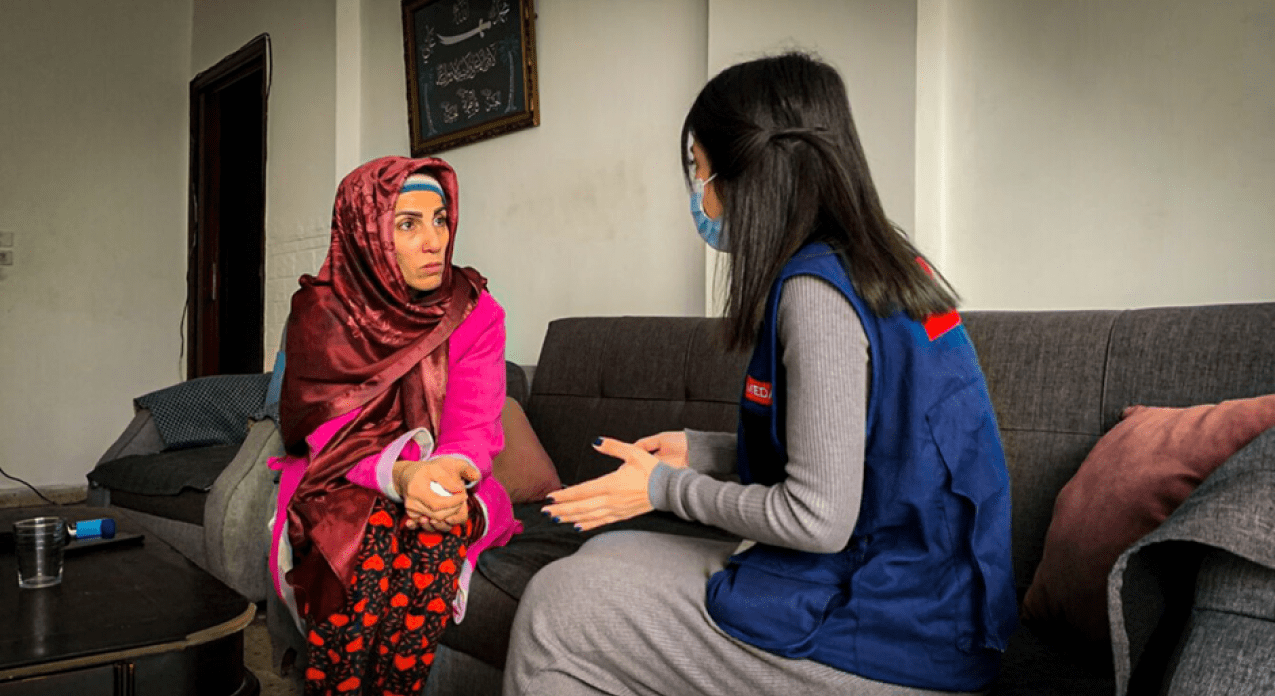BEIRUT THANKS YOU!
More than 77,000 people received help since the shocking explosion in Beirut, Lebanon in August 2020.
You made this happen.
Because of the immediate and generous support of thousands of people like you, the Medair Lebanon team has repaired homes, provided emergency cash, and helped people psychologically process this traumatic event.
What happened in an instant has taken nearly two years to restore.
Life can change in an instant
On August 4th, 2020, 200 people died when the massive explosion shocked the port of Beirut. Over 7,000 people were injured, with 70,000 homes damaged and 300,000 people affected. Medair staff, some of whom were impacted themselves, immediately began working mobilizing volunteers and resources. We took the lead in one of the most affected neighborhoods.
In the time since the Beirut port blast, the economic, political, and social crises in Lebanon have intensified. Our humanitarian services, initially focused on Syrian refugees, has become critical for the survival of Lebanese families.
The ongoing aftermath
“A staggering number of 2.2 million vulnerable Lebanese currently require
emergency aid – in addition to 1.5 million Syrian refugees.”
Najat Rochdi, UN Resident and Humanitarian Coordinator, Lebanon
Life in Lebanon is challenging – the aftermath of the Beirut port explosion, ongoing COVID-19 pandemic, power outages, fuel crisis, shortages of crucial medications, an under-resourced health care system and most recently the rapid rise in inflation amid soaring prices.
The Beirut port explosion caused severe damage to the wheat silos, which remain unrepaired, meaning there is little stock stored in the country. Lebanon previously imported 96% of its wheat from Ukraine and Russia; the Ukraine conflict has further increased food costs and fuel prices. The flat bread, a staple food item in Lebanon, once referred to as “the loaf of the poor” is no longer affordable.

“With our current situation, I can only provide two meals per day. First meal of the day is usually a sandwich to curb my kids’ appetite and then we wait until the evening for a warm meal. Prior to receiving cash support, I couldn’t properly afford any kind of protein, like chicken. With the hyperinflation and devaluation of the Lebanese Pound, it is impossible. Only after receiving cash support, I could afford protein in small quantities, and feed my children properly. I fear for their health. I am aware they are not getting safe and nutritious food that meets their dietary needs for a healthy life. Even for me, I am aware I am not. But I see myself as less of a priority. My mother taught me to be strong.” says Hayat, 50 years old, is a Lebanese community member living in Bachoura, Beirut.
Why Lebanon?

Refugee Crisis

Covid-19 crisis

Deteriorating Economy / Currency

Difficulty accessing basic needs

Political stagnation / social unrest

Aftermath Beirut port blast
What we are doing
The 2012 Syrian crisis prompted Medair’s Emergency Response Team to mobilize to Lebanon. We’re still there – the crisis has not ended. Our response in Lebanon continues to address new critical needs as they arise, primarily in the Lebanese communities.

